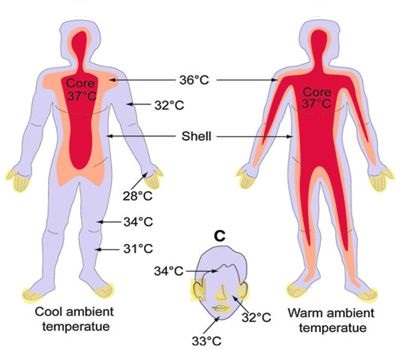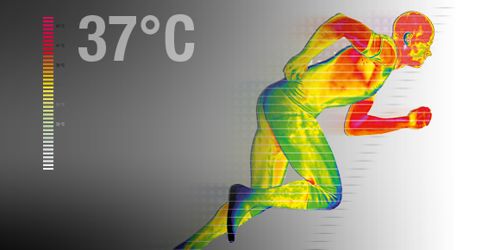Temperature is the property of a system that determines whether or not the system is in thermal equilibrium with other systems.
Body Temperature
The property of the body that determines whether or not the body is in thermal equilibrium with the environment. The body is very good at keeping its temperature within a safe range, even when temperatures outside the body change a lot. When you are too hot, the blood vessels in your skin widen to carry the excess heat to your skin’s surface. When you are too cold, your blood vessels narrow. This reduces blood flow to your skin to save body heat.

Fig: Body Temperature
Normal Body temperature
Range: 97 – 99.5°F or 36-37.50 C Average: 98.6°F or 37°C. Babies and children have a little higher range: 97.9 F to 100.4 F. In older adults, the average body temperature is lower than 98.6°F (36.2°C). A temperature over 100.4°F (38°C) most often means you have a fever caused by an infection or illness.
A very low body temperature (hypothermia) can be serious or even deadly. Low body temperature usually happens from being out in cold weather. High body temperature or Heatstroke occurs when the body fails to control its own temperature and body temperature keeps rising.











